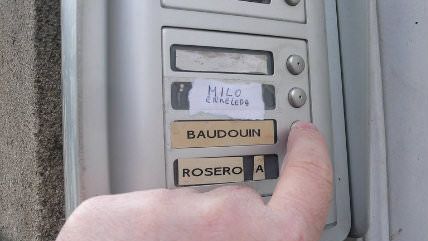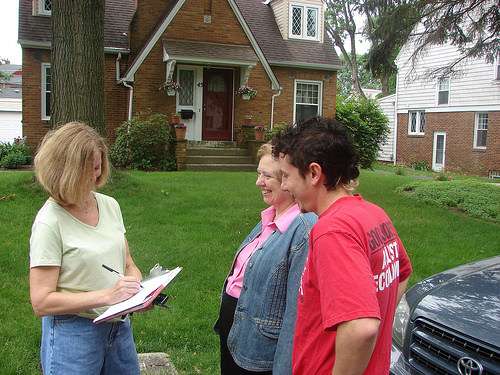Yes, Door-to-Door Canvassing Is Protected Speech


You don't have to answer the door, but a solicitor's right to knock is protected by the First Amendment, as a federal court reaffirmed this week. The case comes from an Indiana town that tried to ban door-to-door canvassing, fundraising, and peddling before 9 a.m. and "after the hour of 9 p.m. or sunset, whichever is earlier." The community also sought to make all canvassers obtain a permit, which would cost $150 to apply for and $50 per week to maintain.
The Citizens Action Coalition (CAC) of Indiana—a nonprofit that relies on field canvassing for about 25 percent of its revenue—brought the lawsuit in 2013 with the help of the American Civil Liberties Union (ACLU) of Indiana. The group alleged that the community of Yorktown's requirements significantly limited CAC's ability to exercise its First Amendment rights. Evenings are when CAC canvassers are most likely to find individuals home, it noted, and yet the town's rules would prohibit all evening canvassing during certain times of year, when dusk can come as early as 5 p.m. CAC also said the canvasser permit fees were prohibitively expensive. Overall, Yorktown's ordinance was not narrowly tailored to serve legitimate public safety and privacy interests, the groups alleged.
The U.S. District Court for the Southern District of Indiana agreed. "Without any substantive evidence establishing an increase in the crime rate due to door-to-door solicitation," wrote Judge Richard Young in his decision, "the Town fails to show how canvassing after sunset but before 9:00 p.m. poses any greater threat to its citizens than any other person who may come to a resident's door after dark."
As for infringing on residents' right to privacy, Young noted that the town could easily accomodate "the unwilling listener's interest" with a much less restrictive policy. "For example, the Town Council could include non-commercial advocates in the list of persons to whom a 'No Peddlers or Solicitors' sign is applicable," he noted. In addition, an unwilling party could practice the time-honored tradition of simply not answering the door.
"Door-to-door canvassing has long played a vital role for the dissemination of ideas in our country," said Gavin M. Rose, a senior staff attorney with ACLU of Indiana, in a statement. "We are pleased that the Court recognized that the ability of government at any level to interfere with this activity is severely limited, and hope that this ruling will educate other municipalities that might consider similar legislation."


Show Comments (59)